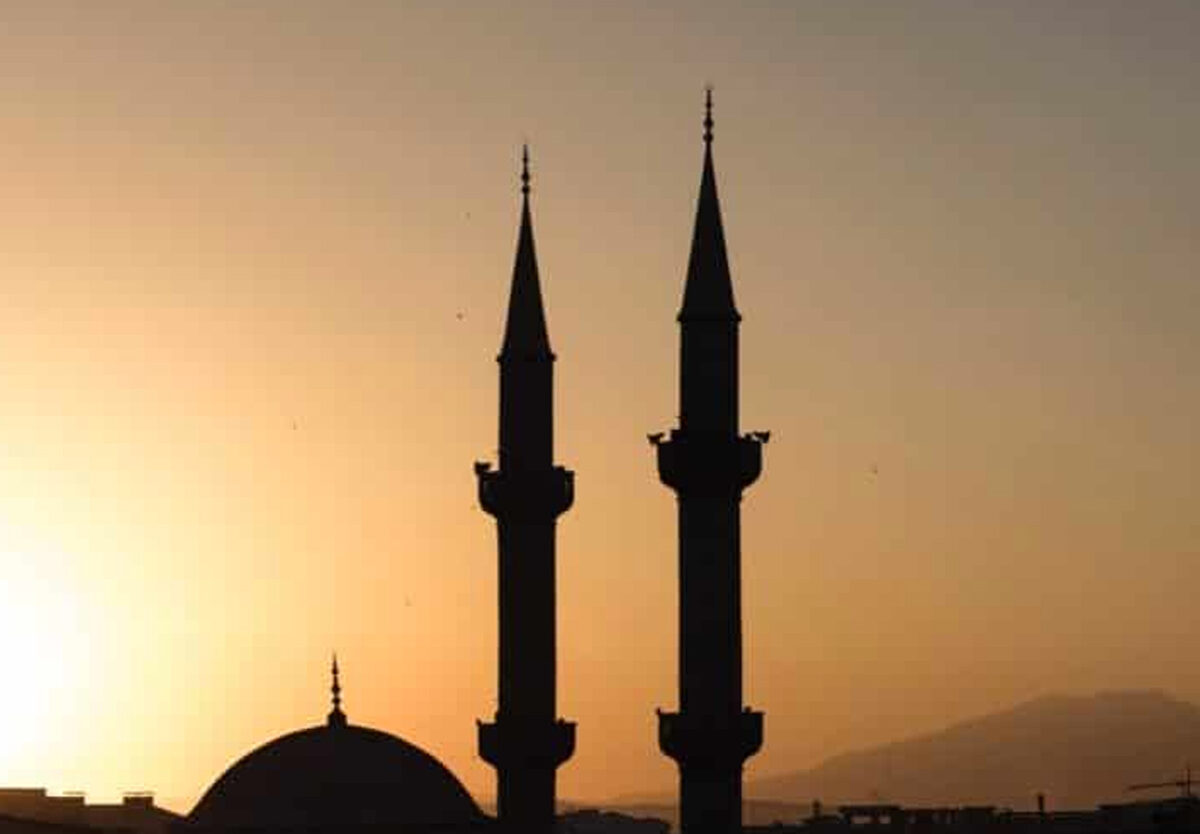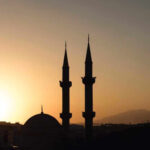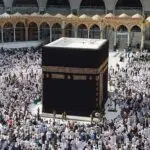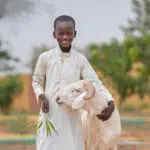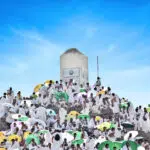Eid al-Adha is the Muslim holy day that honors the sacrifice Ibrahim (Abraham) was willing to make in obedience to God’s command: the life of his beloved son Ismael. But when Ibrahim was about to sacrifice his son, God — impressed by Ibrahim’s faith — provided a sacrificial ram in the boy’s place. Muslims now celebrate this event by sharing a slaughtered animal in three parts: one part for themselves, one for their family, and the third part is given to the needy. We can all join in this spirit of sharing on this special day. The holiday will be mainly celebrated on May 26 this year.
When is Eid al-Adha 2026?
The festival of Eid al-Adha is observed on the 10th day of the Dhul Hijjah — the 12th month of the Islamic lunar calendar.
History of Eid al-Adha
The Prophet Ibrahim, known in Christianity and Judaism as Abraham, went through trials and tests throughout his life. One of these tests was when he was commanded by Allah (God) in a dream to sacrifice his son, Ismael. Both father and son agreed to obey the will of God and headed to Mount Moriah. Ismail lay with his forehead against the ground with a sharp knife placed on his neck by his father. Just when Ibrahim was about to sacrifice his son, God sent a large ram to be slaughtered in the place of Ismael, which Ibrahim then sacrificed to the glory of God.
This event is of great significance, as it displayed the extent to which Ibrahim was willing to obey God’s decree, in order to please him. After getting tested time and time again, Ibrahim’s faith remained staunch and he was rewarded by God. Eid al-Adha is among the biggest Islamic holidays of the year. It is popularly known as ‘Qurbani’ or the Festival of Sacrifice, reminding everyone of God’s mercy and blessings to those who relentlessly do good.
Eid al-Adha also marks the end of Hajj, the obligatory sacred pilgrimage for Muslims to the holy city of Mecca. The main ritual of this day is to slaughter a goat, sheep, or camel, followed by its distribution. One-third of the meat goes to poor people, one-third is distributed to friends and neighbors, and one-third is enjoyed by one’s family. This act emphasizes the importance of sharing with the less fortunate. The festival of Eid is a joyous one and is celebrated by dressing up, visiting friends and relatives, preparing special meat dishes and desserts, gifting children with gifts and money, and hosting barbecue parties.
There are different names for the occasion of Eid al-Adha. It is known as ‘Kurban Bayramı’ in Turkey, ‘Hari Raya Haji’ in Malaysia and Singapore, and ‘Tabaski’ in West Africa. Regardless of the name, the spirit of the holiday runs strongly among Muslims worldwide.
Eid al-Adha timeline
Prophet Ibrahim (Abraham) is born in the ancient city of Ur.
In the "Sunnah," Shaitan (or Satan) tempts Ibrahim not to carry out God's command — Ibrahim then drives him away by throwing pebbles at him, which is commemorated during the Hajj as the 'Stoning of the Devil.'
Prophet Ibrahim passes away in Hebron.
The Prophet Muhammad is a man born in Mecca sent by God as man's final prophet according to the holiest book in Islam, the Qu'ran.
The Hajj pilgrimage occurs when pilgrims voyage to the holy city of Mecca as part of the Five Pillars of Islam, central to every Muslim's religious obligations.
Sheikh Abdul Aziz al-Sheikh cannot deliver his usual Hajj sermon on the day of Arafah for the first time in 35 years.
Due to Covid-19, the annual event of sacrifice ‘Qurbani,’ is arranged online in urban areas.
Eid al-Adha Traditions
Eid al-Adha is a day of sacrifice but is celebrated grandly. Preparations for the holiday begin a month in advance, with designers launching clothing lines especially for the occasion of Eid. Houses are thoroughly cleaned and decorated, and shopping lists are compiled for preparing celebratory feasts. The biggest preparation is the purchasing of the animal for sacrifice. Bazaars are set up where local vendors sell goats, cows, camels, and sheep. Haggling and buying the animal at the best price is a tradition in itself. In countries where this is not legal or common, a whole carcass is purchased and divided into portions of meat.
The day of Eid begins with Muslims waking up early, washing, and dressing in their finest clothes to perform the Eid prayers, followed by greeting friends, family, and neighbors at the mosque. Everyone is greeted with “Eid Mubarak,” wishing each other a blessed Eid. The rest of the day is spent rationing the meat from the sacrificed animal, distributing it, and then preparing for the evening festivities, which involve dressing up and having outdoor barbecues. It is very common to post your outfit of the day and Eid selfies on social media.
Eid al-Adha By The Numbers
4 – the number of days Eid al-Adha is celebrated by Muslims.
3 million – the estimated number of Muslims who travel to Saudi Arabia for the annual pilgrimage of Hajj.
2 – the number of Eid festivities in a year observed by Muslims.
3 – the division of the meat of the sacrificed animal.
⅓ – the portion of the meat kept for family.
⅓ – the portion of the meat given to relatives, friends, and neighbors.
⅓ – the portion of the meat given to the poor and needy.
10 million – the estimated number of animals sacrificed during Eid days in Pakistan alone.
10th – the date of the month of Dhul Hijjah on the Islamic calendar on which Eid-al-Adha falls.
Eid al-Adha FAQs
Why is Eid al-Adha celebrated?
The Islamic festival of Eid al-Adha commemorates the willingness of Prophet Ibrahim (Abraham) to obey Allah’s command to sacrifice his son. The event is observed by Muslims around the world.
What are the two Eids?
The two occasions of Eid celebrated by Muslims are Eid al-Fitr and Eid al-Adha.
How do you pronounce Eid?
Eid is pronounced ‘eed,’ as in the word ‘feed.’
How to Observe Eid al-Adha
Dress your best
On Eid al-Adha Muslims may gift their children with new clothes while adults choose their own finery to wear on this special day. Wearing your nicest clothes during Eid prayers at the mosque symbolizes respect for the day's rituals. All over the world, Muslims honor the sacrifices, both large or small, that have been made for their happiness and wellbeing.
Set aside a few moments of contemplation
Eid al-Adha should be a day of contemplation. Set aside some time, even just a few minutes, to simply sit quietly. Whether you think of this as prayer, meditation or centering, this can become a daily practice that will enrich your life.
Eat something festive
In addition to the distribution of meat, Muslims prepare a variety of celebratory foods for their families and friends on Eid al-Adha. There are richly-spiced stews and vegetable dishes as well as traditional breads. Or try maamoul, a popular shortbread cookie filled with pistachios or dates. Lokum, another tasty holiday treat, is commonly known as Turkish Delight
5 Things About Islam That Non-Muslims Should Know
Muslims revere three female prophets
Most Muslim scholars agree that three women are considered prophets in Islam including Eve, Adam's wife; Mary, the mother of Jesus; and Asiyah, the wife of the Pharoah.
Muslims have six main beliefs
According to the American-based, non-profit, the Islamic Networks Group (ING), Muslims have six core beliefs. They include a belief in God, angels, and God's prophets and messengers. Muslims also believe in God's revelations through holy scriptures, the Qu'ran, and both Muslims and Christians share a belief in an afterlife and a trust in God's divine will.
The Qu'ran and the Bible share the same stories
In both Christianity and Islam, there are characters common to both — like the prophet Abraham and his wife, Sarah; the story of Noah and the ark; as well as references to Jesus.
Muslims and modesty
Because of Islam's physical prayer routines of kneeling and being prostrate on the ground as a sign of respect, it is seen as immodest for women to be in a prostrate position in front of men.
Muslims and Jesus
Although Muslims honor Jesus as the son of the Virgin Mary, conceived without a father by the command of God, Muslims believe that as special as he was, Jesus was a still a human being.
Why Eid al-Adha is Important
It honors faith and sacrifice
Eid al-Adha, or Festival of Sacrifice, commemorates Ibrahim's unwavering faith, even when God commanded him to sacrifice the the thing he cherished most in life — his son. This is a good time for us to think about what we are willing to do for the people we love. Most importantly, we remember that little acts of kindness can make a monumental impact in someone else's life.
It's an opportunity to share our abundance
This Muslim tradition, practiced on Eid al-Adha, symbolically illustrates the power of sharing by dividing meat into three portions to be eaten by family, friends and those in need. Being conscious of extending what we have beyond our own doors is a wonderful way for anyone to take part in celebrating this holiday
It's a lesson in gratitude
For Muslims, it's crucial to speak the name of Allah before killing an animal to be shared on Eid al-Adha. In this way, you honor the life of the animal sacrificing itself to feed the people. For all of us who eat meat, Muslim and non-Muslim alike, this is a good day to be grateful to all the animals.
Eid al-Adha dates
| Year | Date | Day |
|---|---|---|
| 2024 | June 17 | Monday |
| 2025 | June 7 | Saturday |
| 2026 | May 26 | Tuesday |
